China, with its significant investment in the aerospace industry and higher education, has become a major hub for aerospace engineering education and research. Aerospace engineering programs at Chinese universities combine advanced infrastructure, international collaboration, and strong government support to attract both domestic and international students. These advancements align with China’s national space development strategy and its ambition to become a global aerospace leader.
Top Chinese universities offering aerospace engineering programs provide courses in both English and Chinese, creating diverse educational opportunities. One major advantage of studying in China is the affordability of aerospace engineering education compared to Western countries.
In addition, the Chinese government offers a variety of scholarships, such as the Chinese Government Scholarship (CSC), which can cover a significant portion of educational expenses. China’s extensive investment in aerospace research projects has placed its aerospace engineering programs in a strong position when it comes to access to equipment and practical opportunities. In this article from Elm Vira, we will take a closer look at aerospace engineering programs in Chinese universities.
The Importance of the Aerospace Industry in China
Over the past two decades, China’s aerospace industry has experienced rapid growth and has become a strategic national priority. Through initiatives like “Made in China 2025” and the “China Space Program 2030,” the country aims to position itself as a global aerospace powerhouse. China’s annual investment of over $11 billion in space and aviation programs underscores the importance of this sector in its national development strategy.
Recent achievements—such as the Zhurong Mars rover, the Tiangong space station, and the C919 passenger aircraft—have drawn global attention to China’s progress in aerospace. These accomplishments are closely tied to the development of aerospace engineering programs in Chinese universities, which play a crucial role in training skilled professionals and advancing cutting-edge technologies.
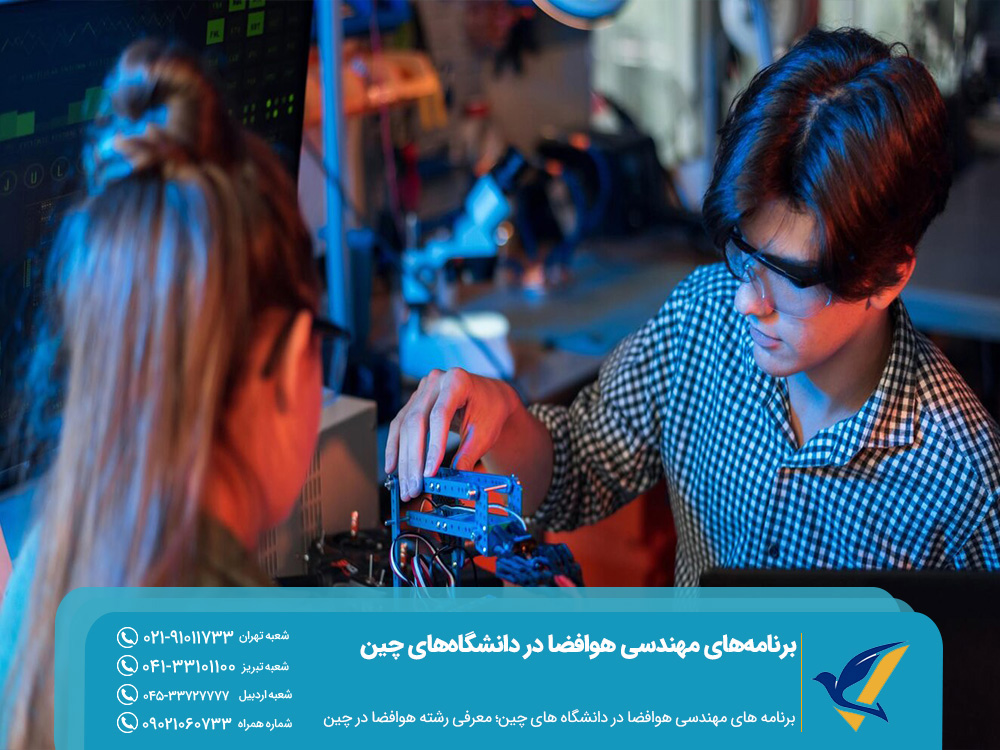
Aerospace Engineering Programs in Chinese Universities: An Introduction to Aerospace Studies in China
Aerospace engineering in China encompasses two main fields: aeronautical engineering and astronautical engineering, both offered with various specializations at top universities across the country. Considered one of the best academic disciplines to study in China, aerospace engineering combines advanced theoretical knowledge with hands-on practical training. Students in this field gain an in-depth understanding of the design, manufacturing, testing, and operation of aircraft, rockets, satellites, and other aerospace systems. What makes aerospace studies in China unique is their close integration with national and industrial projects, offering students the opportunity to engage in real-world engineering environments.
Degree programs are available at the bachelor’s level (4 years), master’s level (2–3 years), and PhD level (3–5 years), with instruction offered in both Chinese and English. The advantages of studying aerospace engineering in China for international students include access to cutting-edge technologies, high-quality education, relatively affordable tuition fees, and internship opportunities at major companies such as COMAC (Commercial Aircraft Corporation of China), CASC (China Aerospace Science and Technology Corporation), and AVIC (Aviation Industry Corporation of China).
Aerospace Engineering Programs at Chinese Universities
Aerospace engineering programs in Chinese universities are designed to train professionals with a strong foundation in areas such as aerodynamics, propulsion systems, aerospace structures, flight mechanics, advanced materials, and control systems. With a strong focus on innovation and entrepreneurship, these programs prepare students to tackle complex challenges in the global aerospace industry. A significant portion of the curriculum is dedicated to practical training and laboratory work, giving students hands-on experience with flight simulators, wind tunnels, and advanced design and analysis equipment.
One of the notable benefits of studying this field in China is the availability of joint programs with leading European and American universities, offering unique opportunities for academic exchange and collaboration. Through investments in state-of-the-art research labs, strong industry partnerships, and the development of aerospace engineering programs at top universities, China has created a highly supportive learning and research environment for students.
Currently, over 20 Chinese universities offer aerospace engineering programs at various academic levels, with 10 of them ranked among the world’s top 100 universities in this field.
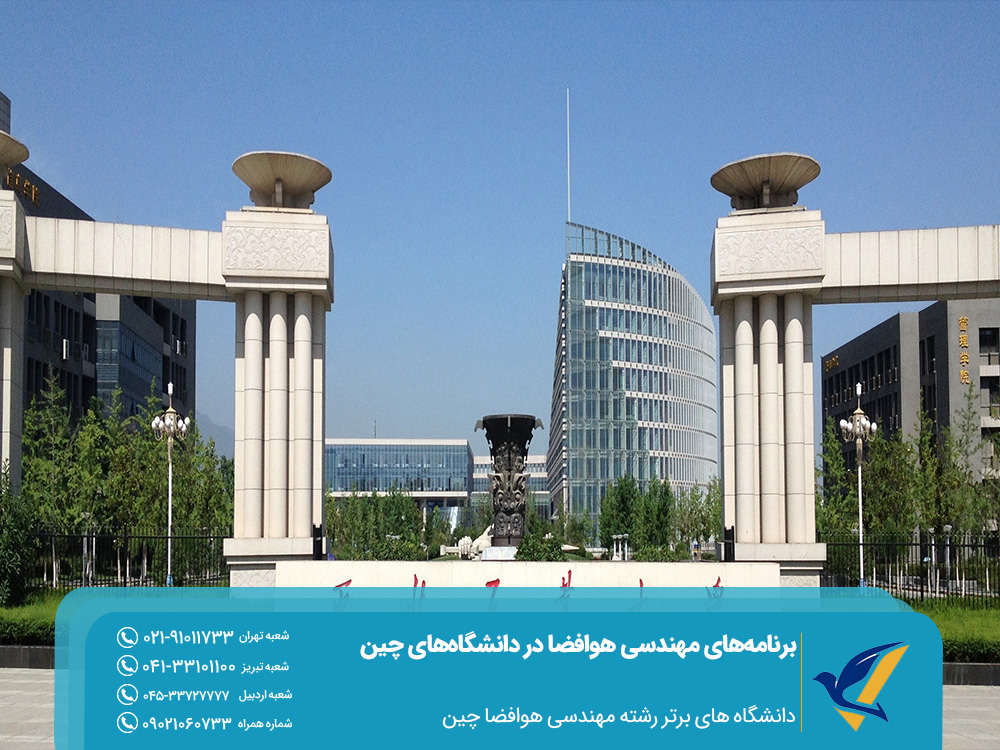
Top Aerospace Engineering Universities in China
China’s top aerospace engineering universities are renowned institutions with strong track records in both education and research. Beihang University (formerly known as Beijing University of Aeronautics and Astronautics) is a pioneer in this field with over 70 years of history. Home to the National Laboratory for Aeronautics and Astronautics, Beihang offers students access to world-class facilities. Tsinghua University, through its School of Aerospace and Mechanical Engineering, is globally recognized for its expertise in aircraft design and aerospace structures.
Nanjing University of Aeronautics and Astronautics (NUAA) is a leader in aerodynamics and control systems, while Northwestern Polytechnical University (NPU) has established itself as a center of innovation in missile design and underwater and aerospace technologies. These leading universities maintain strong partnerships with key players in China’s aerospace industry, such as COMAC and CASC, which translates into valuable internship and employment opportunities for students.
Tuition Fees for Aerospace Engineering in China
One of China’s competitive advantages is the relatively affordable cost of studying aerospace engineering compared to Western countries. For example, at leading institutions like Beihang University, annual tuition fees for undergraduate aerospace programs typically range from $3,500 to USD 6,500, whereas similar programs in the U.S. or Europe can exceed $40,000 USD per year.
For postgraduate studies, tuition fees for aerospace-related degrees in China generally fall between $4,000 and USD 8,000 annually, and in second-tier universities, the cost may be as low as USD 3,000 per year. It’s important to note that programs are offered in both Chinese and English, with English-taught programs usually costing 10–15% more.
Students should also budget for registration and health insurance fees, which typically add another $300–USD 600 per year. Additionally, many top Chinese aerospace universities offer special scholarships or tuition discounts for high-achieving students or applicants from certain countries, which can reduce overall expenses by up to 30%.
When comparing the cost of studying aerospace engineering abroad, the cost-to-quality ratio in China is considered highly favorable, making it an attractive destination for international students seeking a world-class education at a reasonable price.
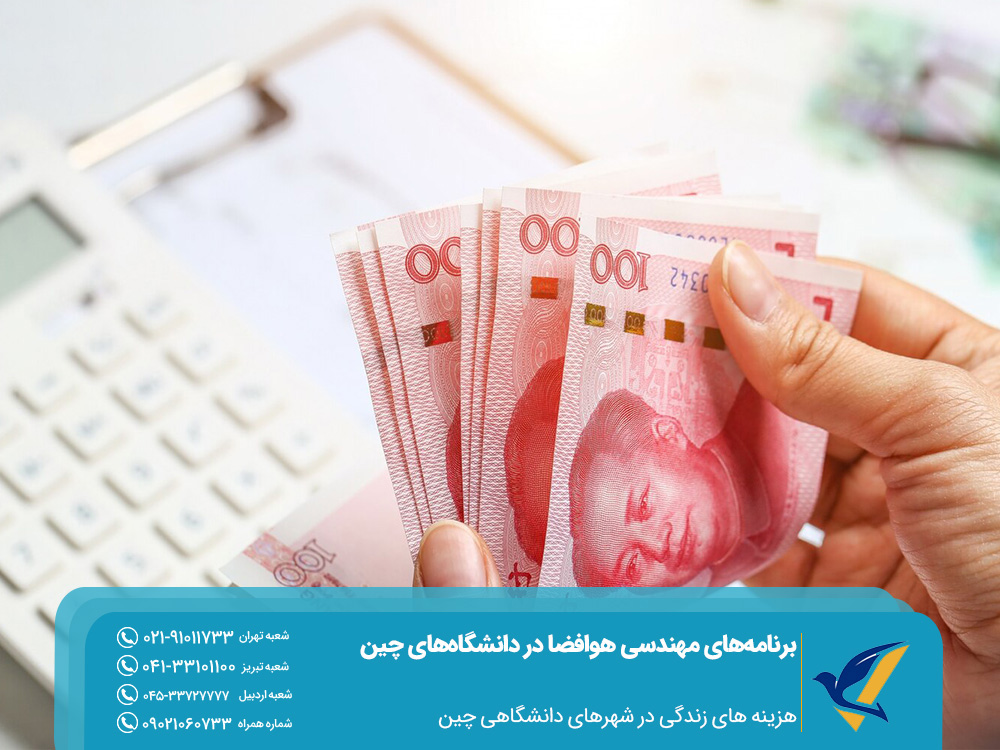
Cost of Living in Chinese University Cities
In addition to tuition fees for aerospace engineering programs at Chinese universities, the cost of living in university cities across China varies depending on the geographic location and the student’s lifestyle. In major, developed cities like Beijing and Shanghai—home to some of China’s top aerospace engineering universities—living expenses are generally higher. Student dormitories, which most universities offer to international students, typically cost between $100 to $300 per month and usually include utilities such as water, electricity, and internet. Renting a private apartment near universities in big cities can range from $300 to $800 per month.
Meals at university cafeterias are highly affordable, costing around $2 to $4 per meal, while dining in restaurants outside the university may range from $5 to $15 per meal. Public transportation in China is inexpensive, with monthly passes for unlimited metro and bus use costing approximately $20 to $40.
Overall, international students who choose to study aerospace engineering in China should expect to spend between $400 and $800 per month on living expenses. This amount is considered reasonable compared to China’s tuition fees and quality of life. Students studying in smaller cities such as Nanjing, Wuhan, or Xi’an can live on roughly 30% less.
Scholarships and Financial Aid
Free education in China is available through various scholarships for international students interested in aerospace engineering programs at Chinese universities. The Chinese Government Scholarship (CSC) is the most important and comprehensive state-funded scholarship. It covers full tuition, provides a monthly stipend of $700 to $1,000 (depending on the academic level), includes health insurance, and in some cases, covers airfare. This highly competitive scholarship is awarded to about 15% of applicants, and the application deadline is typically at the end of February each year.
In addition to the CSC, some top universities offering aerospace engineering programs in China also provide their scholarships. These can range from 20% to 100% tuition discounts. For instance, Beihang University (Beijing University of Aeronautics and Astronautics) offers the “Future Stars Scholarship,” which includes full tuition coverage and a $500 monthly stipend for outstanding international students. There are also provincial and municipal scholarships, such as the Beijing, Shanghai, and Jiangsu scholarships, which generally cover 50% to 100% of tuition fees for aerospace engineering programs.
Doctoral students in aerospace engineering can benefit from research assistant (RA) or teaching assistant (TA) positions, earning a monthly salary of $400 to $800. Applicants for Chinese scholarships are typically required to have a strong academic record, an English or Chinese language certificate, and solid recommendation letters. Additionally, major Chinese aerospace companies like COMAC and CASC offer scholarships to talented students, usually requiring a service commitment after graduation.
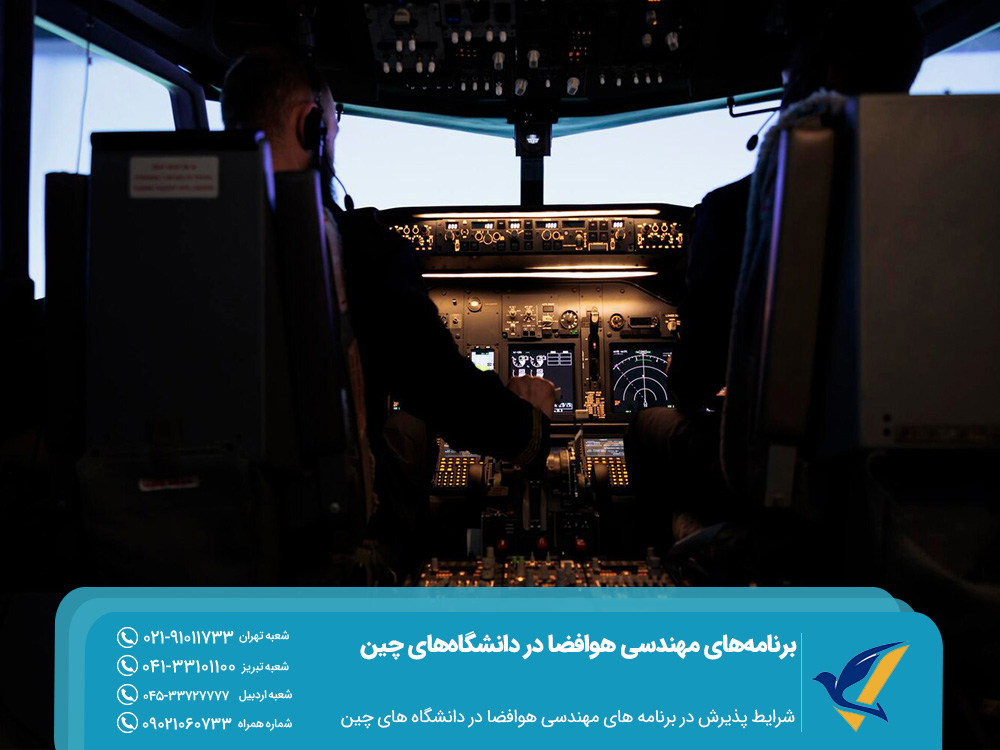
Admission Requirements for Aerospace Engineering Programs at Chinese Universities
The eligibility criteria for studying aerospace engineering in China include a combination of academic qualifications, language proficiency, and legal documentation that international applicants must meet. Aerospace engineering programs at Chinese universities typically require a relevant academic background and a strong GPA in the previous level of study.
For undergraduate admission, applicants must hold a high school diploma with strong grades in mathematics, physics, and chemistry. For master’s and PhD programs, a bachelor’s or master’s degree in mechanical engineering, aerospace engineering, electrical engineering, computer science, or other related technical fields is essential. Applicants should note that top aerospace universities in China have highly competitive admission processes.
1. Language Requirements and Interview for Aerospace Engineering Programs in China
Language proficiency is one of the core admission requirements for studying in China. For English-taught programs—which are more common at the graduate level—an IELTS score of at least 6 or a TOEFL score of 80 is generally required. However, leading universities such as Tsinghua University and Shanghai Jiao Tong University have stricter requirements, often asking for an IELTS score of 6.5 or a TOEFL score of 90. For Chinese-taught programs, an HSK level 4 certificate is required for undergraduate studies, and level 5 for graduate studies.
Students who do not meet the language requirements may enroll in pre-university language programs, which typically last 6 to 12 months and increase the overall cost of studying aerospace engineering in China.
An interview is also a crucial part of the admission process. Often conducted online, the interview evaluates the applicant’s technical knowledge, motivation, and communication skills. Questions in these interviews typically cover fundamental topics such as aerodynamics, fluid mechanics, thermodynamics, and aerospace structures.
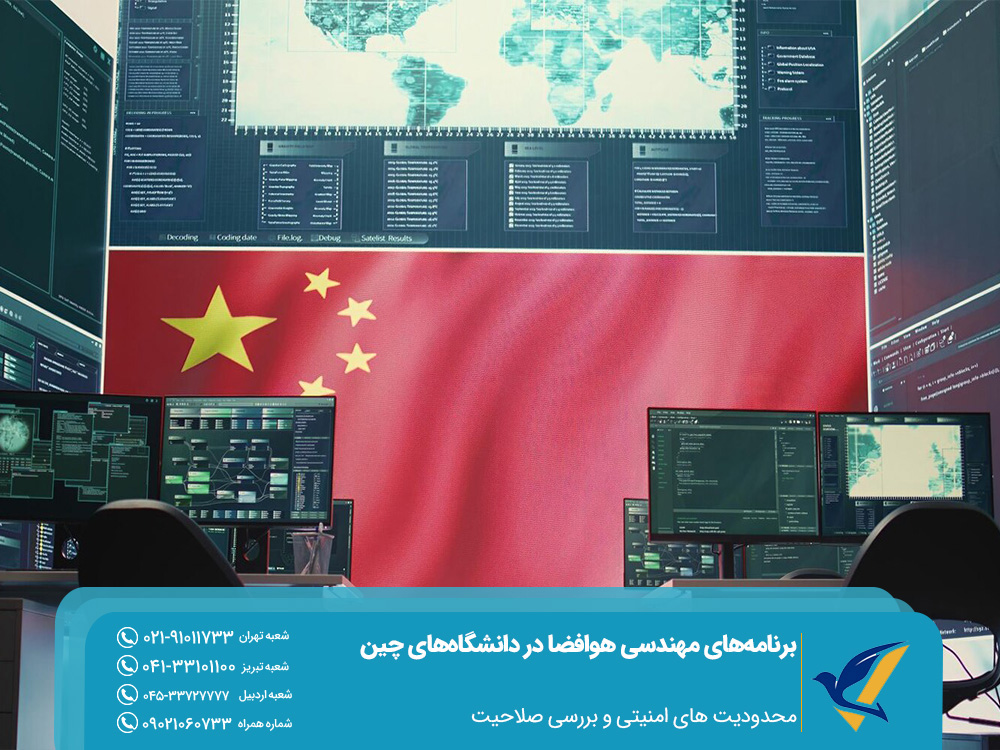
- Security Restrictions and Eligibility Review
Due to the strategic nature of aerospace engineering programs in Chinese universities, more rigorous security checks are conducted for international applicants compared to other fields. Many advanced courses related to missile design, aerospace military technologies, and certain aspects of advanced space propulsion impose restrictions on admitting foreign students. These study conditions in China are especially strict for students from some countries and may involve a longer review process. Applicants should be prepared for their academic records, research background, and even social media accounts to be scrutinized.
In some cases, students are required to sign declarations agreeing not to use the knowledge and technology for military purposes or transfer them to third countries. However, top Chinese aerospace engineering universities strive to clarify these issues at the start of the admission process to prevent problems later on. Students should also be aware that in certain sensitive specializations, participation may be limited to specific research projects and laboratories.
- Aerospace Engineering Programs in Chinese Universities: Conditional Admission and Preparatory Courses
For students who do not meet all admission requirements, some leading Chinese aerospace engineering universities offer conditional admission options. For example, if a student’s language score is slightly below the required level but they have an excellent academic record, they may be accepted on the condition that they attend an intensive language course before the main semester begins. Also, for students with different academic backgrounds, bridge programs have been designed where they take prerequisite and foundational aerospace engineering courses.
These programs last from six months to a year and slightly increase the cost of studying aerospace engineering in China but allow students to prepare for the main program. Nanjing University of Aeronautics and Astronautics (NUAA) and Beijing University of Aeronautics and Astronautics have successful programs in this area. In these courses, students learn fundamental concepts of aerodynamics, fluid mechanics, solid mechanics, and engineering mathematics. Passing these courses with a minimum grade is essential for admission to the main program.
Summary
Aerospace engineering programs in Chinese universities have reached a significant milestone in their development. Over two decades of extensive investment, robust educational and research infrastructure, and strategic international collaborations have positioned these programs to compete with the world’s most prestigious universities. Leading Chinese aerospace engineering universities have created advanced research centers and employed distinguished professors from around the world, providing a world-class educational environment. The cost of studying aerospace engineering in China remains one of the country’s major competitive advantages in attracting international students.
Despite the improved quality of education and advanced equipment, tuition fees for this field remain very affordable compared to Western countries. With years of experience, Elm Vira Immigration Institute helps you navigate the challenging path of academic migration with ease and gain admission to your desired program in the best countries and universities worldwide. For more information about studying abroad and free consultations, please visit the consultation section.
میانگین امتیازات 5 از 5
Vote count: 1 Vote